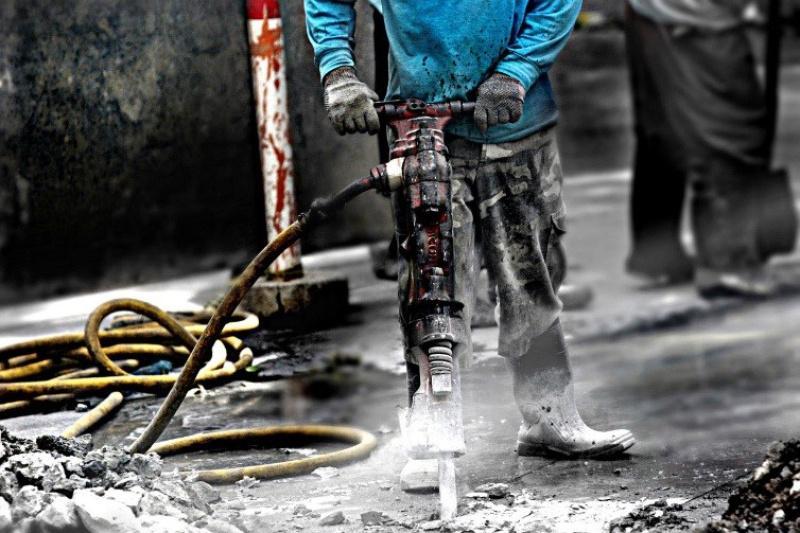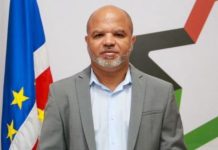
Africa-Press – Cape verde. Several entities today warned of the urgency of reviewing the 2013 noise pollution law, but stressed that without inspection nothing will change.
Contacted by Inforpress, both the Ombudsman’s Office, the General Inspection of Economic Activities (IGAE), as well as the administrator of the Facebook page Provedor da Praia, and the mentor of the project that aims to review this law, are unanimous in stating that it has arrived It’s time for a new update to the legislation, so that things become clearer.
Law no 34/VIII/2013, of 24 July, which establishes the regime for the prevention and control of noise pollution, aiming to safeguard the rest, health, tranquility and well-being of the population, complements law no 86 /IV/93, of 26 June, which defines the basis of environmental policy.
To Inforpress, among the complaints they receive daily, the entities heard highlighted complaints about noise caused by nightlife establishments, especially unlicensed bars that at night turn into nightclubs, as well as bakery industries located in condominiums.
They also pointed out loud music until dawn in the neighborhoods, noise caused by motorbikes, works on buildings without concertation, people who play music in individual cars late at night, under neighbors’ windows.
Hence, for the Ombudsman, José Carlos Delgado, noise pollution is a social problem that has caused many people despair.
For this person in charge, the law must adapt to today’s times, clarifying those involved, defining and establishing penalties, having warned that without permanent supervision nothing will change.
“We need to monitor, we need to act and we need to fine. Here it is also necessary to raise awareness among civil society, firstly to report it, because many do not do so, and for entities to become more involved in this issue, from the chambers, the IGAE, the National Police”, he observed, defending joint work between the parties and urgency in updating this law.
In view of the various complaints, he assured that the Ombudsman’s Office has always been concerned about this problem and has consulted with several entities with responsibility in the matter, whose position has been unanimous, in the sense that the situation deserves a careful and urgent look, especially because, they warn, “ Other phenomena are associated with it, such as alcoholism, child prostitution, drug use and related risks to public safety.”
For his part, the administrator of the Praia Provider page, João Cardoso, stated that since this page was created, he has received complaints of various types, with a greater incidence on noise pollution, particularly in the city of Praia.
“When we receive it, we analyze it because our page has a civic nature, without politics in the middle, and when the subject meets the purpose of the page, we publish it”, he said, considering that the noise pollution law in the country is still a law for the “English ver”, justifying that in practice it is not being applied well.
As an example, he pointed to the widespread sale of alcoholic beverages in grocery stores, associated with loud music, as a way of attracting customers.
He reported that when supervisory entities are called, they claim that such establishments are licensed, when in fact the license they have is only to operate as grocery stores and not as nightclubs.
“The authorities practically do not take into account the complaints of citizens who are left to their own devices. When IGAE is called, it points the finger at the Police and the Police, in turn, say that the matter is the responsibility of the Chamber, that is, no one wants to assume their responsibilities”, he said, remembering the existence of a Municipal Code of Posture which from your perspective is not applied.
For the inspector general of Economic Activities (IGAE), Paulo Monteiro, noise pollution is a complicated situation, taking into account that there are two aspects, the timetable aspect and the “loud sound” noise aspect, having highlighted that this institution Often ends up assuming full responsibility for complaints.
“What’s happening is that it seems like it’s become a culture to earn a living without thinking about others. For example, we receive many calls on Fridays, we call the police, and when they go to the location half an hour later the residents call again and complain about the noise again, in other words, instead of going to other areas they always return to the same place. location,” he explained.
In his view, the existing noise law has many gray areas that give people possibilities to get around the situation, suggesting work carried out among the population, to make them aware that everyone needs to earn a living, but without disturbing others.
The president of Praia City Council, Francisco Carvalho, when asked about the issue of inspection and licensing, attributes the primary responsibility to the National Police in restoring public order to put an end to the situation, each time it is called to intervene.
However, there is a project to revise the law, an initiative by the deputy of the Movement for Democracy (MpD), Aniceto Barbosa, which already has more than 300 signatures from dissatisfied Cape Verdean citizens, mainly from the City of Praia, where the problem is bigger, followed by São Vicente, which signed, expressing discomfort, “coffee, lunch and dinner”.
“Noise pollution is an issue that I brought to parliament as a flag, I lived in Sal for a long time, I am a deputy for the Sal constituency, I lived in Murdeira, a quiet place that allows for peaceful rest. Upon arriving in the City of Praia, where I live in Achada de Santo António, for a parliamentary mission, I couldn’t sleep a night peacefully, because of the noise of the city”, he explained.
“It is not possible to compare the City of Praia with Sal, but by doing all the filtering possible, I think that at night people have the right to rest, to sleep and be able to work the next day”, he considered.
So, he continued, it was from this perspective that he made some contacts at national level to understand what is there in terms of legislation, stating that when studying the 2013 law he found that it has not been implemented in its entirety as it has many loose ends.
“Particularly when we talk about licensing granted by municipal councils, from works, parties to any type of event that can produce noise or noise, we all know until what time parties are allowed or not and in which areas they are allowed to be held, but in the meantime , it is not fulfilled”, he exemplified.
It was in this sense that, he stated, he is working to produce a zero draft to present it in parliament and ask for support from colleagues, and is currently waiting to be scheduled for discussion in the plenary.
He added that the proposed law provides for the review of some points, namely the amendment of article 11 which talks about the parameters for applying nuisance criteria, which buildings are intended to host public entertainment, which entities are accredited for licensing.
Therefore, he said, the expectation is that it will be approved later this year, possibly in the first quarter, in mid-March, considering that if it is approved it will give great satisfaction to civil society that has been demanding and also drawing attention to the issue of oversight.
Noise pollution occurs when sounds exceed the normal hearing limit and become harmful to health.
For the World Health Organization (WHO), noise pollution of 50 dB (decibels) impairs communication and, after 55 dB, causes health problems. The list of symptoms caused by these sounds includes stress, anxiety, depression, headache, insomnia, tiredness and irritation and, in severe cases, tinnitus and hearing loss can occur.
For More News And Analysis About Cape verde Follow Africa-Press





